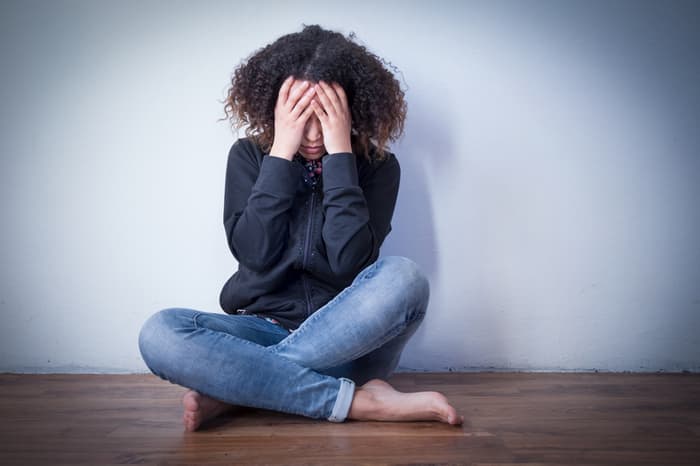- Calls to this hotline are currently being directed to Within Health, Fay or Eating Disorder Solutions
- Representatives are standing by 24/7 to help answer your questions
- All calls are confidential and HIPAA compliant
- There is no obligation or cost to call
- Eating Disorder Hope does not receive any commissions or fees dependent upon which provider you select
- Additional treatment providers are located on our directory or samhsa.gov
Vyvanse for Binge Eating Disorder
Binge eating disorder is an eating disorder characterized by repeated episodes of binge eating. Traditionally, BED has been treated with therapy or self-help techniques. [1] BED impacts people of all ages and genders. [1]
In the last few years, psychiatrists have started using a medication called Vyvanse to treat BED. [1] Vyvanse is the first medication in the world to be approved to treated BED symptoms. [1]
What is Vyvanse?
Vyvanse is a medication that originally was used to treat Attention-Deficit Hyperactivity Disorder (ADHD). Vyvanse stimulates the central nervous system and brain chemicals which can create shifts in eating patterns. [1]
How Does Vyvanse Work for Binge Eating?
In 2015, Vyvanse was approved as a treatment method for BED. [1] In short-term research studies, Vyvanse has been shown to reduce obsessive thoughts about binge eating and the amount of binge episodes. [2] Vyvanse is not meant to be used as a way to lose weight. [1]
Vyvanse Side Effects or Risks
There are side effects associated with taking Vyvanse. These include: [3]
- Nausea
- Vomiting
- Constipation
- Stomach or abdominal pain
- Loss of appetite
- Dry mouth
- Headache
- Nervousness
- Dizziness
- Trouble sleeping
- Sweating
- Weight loss
- Irritability
- Restlessness
More serious side effects are:
- Blurred vision
- Irregular or fast heartbeat
- Mood or behavioral changes, like depression, hallucinations, or suicidal thoughts or behaviors
- Muscle twitching or shaking
- Signs of blood flow problems, like cold toes or numbness
- Change in sexual interest or ability
- Swollen ankles or feet
- Extreme fatigue
- Rapid or unexplained weight loss

People with certain co-occurring conditions may not be able to take Vyvanse. Co-occurring conditions refers to when someone has more than one condition at a time. People with the following conditions may not be able to take Vyvanse: [1,3]
People with certain co-occurring conditions may not be able to take Vyvanse. Co-occurring conditions refers to when someone has more than one condition at a time. People with the following conditions may not be able to take Vyvanse: [1,3]
- People who take antidepressants. Vyvanse can negatively interact with other medications, especially antidepressants. Some people with BED may already take an antidepressant to manage a co-occurring disorder, such as anxiety or depression.
- People with substance use disorders. Research shows that people with substance misuse issues are more likely to develop a dependence on Vyvanse. Mixing Vyvanse with other misused substances, like ecstasy or meth, can cause health problems
- People with high blood pressure. Vyvanse can raise blood pressure. For people with high blood pressure, this can be dangerous
Who Should Take Vyvanse?
Research shows that Vyvanse might be a helpful treatment approach for adults with moderate to severe BED. [1,2] It is not meant to be the first line of treatment. It’s recommended that traditional treatment approaches are tried first. [1]
How Effective is Vyvanse for Treating Binge Eating?
Effectiveness of Vyvanse for BED Treatment is a new look into the treatment areas for this disorder. Various studies have occurred recently that look at the behavioral effects in treatment. In a 12-week study of adults who were diagnosed with moderate to severe binge eating disorder, Vyvanse was shown to reduce weekly binge days [4].
At the conclusion of the study, adults with moderate to severe binge eating disorder who took Vyvanse experienced significantly fewer binge days per week compared to the control group.
Using the Yale-Brown Obsessive-Compulsive Scale Modified for Binge Eating (Y-BOCS-BE) was used at the end of the study to measure obsessive thoughts and compulsive behaviors.
Results showed that the patients taking Vyvanse had a greater decrease in obsessive and compulsive thoughts and behaviors about binge eating as compared to the control group.
Understanding What Research Shows
Another two clinical studies involving 724 adults with moderate to severe binge-eating. The group taking Vyvanse had a decrease in the number of binge eating days per week and showed fewer obsessive-compulsive binge eating behaviors compared to the control group [3].
Even with positive outcomes, there are serious risks with this medication. Psychiatric problems, heart complications, stroke, and heart attacks in adults have been seen. Vyvanse is a central nervous system stimulant and can cause psychotic or manic symptoms like hallucinations, delusional thinking, or mania even without a prior history of a psychotic illness [3].
Psychotherapy is used primarily to treat binge eating disorders [6]. It can be through Cognitive Behavioral Therapy (CBT) which can help a person learn triggers to binge episodes, identify negative feelings and thoughts, as well as more healthy self-talk and behaviors.
Interpersonal psychotherapy focuses on a person’s relationship with others, including family, friends, and co-workers. It can help reduce binge eating which is often triggered by poor relationships and unhealthy communication skills brought on by underlying mental health issues such as anxiety or depression.
Dialectical Behavioral Therapy (DBT) can help a person learn new coping skills such as stress tolerance, emotional regulation, mindfulness, and improved interpersonal skills, all of which can be triggers for binge eating episodes.
Determining Effectiveness of Vyvanse For BED

Understanding the effectiveness of Vyvanse for BED Treatment means looking at the medication itself.
Vyvanse is a medication that is typically used to treat attention deficit hyperactivity disorder but has recently been approved to treat binge eating disorder in adults.
It is the first FDA approved medication to treat moderate to severe binge eating disorder. It is a stimulant and can be habit-forming. Common side effects can include dry mouth and insomnia. Vyvanse is a Schedule II controlled substance and also has a high potential for drug abuse and dependence.
Dr. Mitchell Mathis, Director of the Division of Psychiatry Products in the FDA’s Center for Drug Evaluation and Research reported that the approval of Vyvanse “provides physicians and patients with an effective option to help curb episodes of binge eating” [8].
In various studies, Vyvanse was shown to decrease the number of binges per week and less obsessive-compulsive thoughts and behaviors.
Clinical Director of Columbus Park Collaborate, Melissa Gerson stated that she worries about the message around Vyvanse as being the miracle drug to solving binge eating.
Binge eating is a complicated disorder that involves multiple behavior and emotional issues.
In adults with binge eating disorder, Vyvanse showed great improvements in binge eating behavior. In a controlled study, 260 participants showed greater decline in log-transformed binge eating days per week as compared to the placebo group as reported by Dr. Susan McElroy of Lindner Center for HOPE in Mason Ohio [2].
With few medications approved to treat binge eating, Vyvanse has shown great promise, and current studies have shown findings that could result in more pharmacological treatments for those with moderate to severe binge eating disorder.
Even with success of this drug it is not easily prescribed as the addiction history of a patient needs to be considered with the use of Vyvanse due to its addictive properties.
Goals of BED Treatment
When considering the use of medication for BED treatment, it is also important to look at what the overall goals of treatment for this eating disorder. The goal of binge eating disorder treatment is to reduce binges, and when necessary lose weight [7, 8].

It is to look at patterns of unhealthy coping skills and triggers to the binges as well as emotional feelings such as shame, guilt, poor self image when addressing the psychological issues associated with this disorder. Vyvanse can be an aid in treatment but is not the sole treatment. Binge eating can lead to health issues such as weight gain, obesity, diabetes or high cholesterol.
In conclusion, even though studies are early in the pharmacological treatment of binge eating, both medicine and therapy are essential in the treatment effectiveness of this disorder.
The use of Cognitive Behavioral Therapy, Dialectical Behavioral Therapy, or other types of analysis can help look at the underpinnings of this disorder, while Vyvanse can assist with curbing behaviors in the interim.
Being able to take into consideration drug and substance addiction, as well as the effects of medication on a person’s body is also key in knowing if it is right for you.
Alternative to Vyvanse for Binge Eating
There are other treatment options for binge eating than Vyvanse. Using Vyvanse to treat binge eating is a relatively new treatment approach. There are other therapeutic techniques, such as: [1]
- Cognitive-behavioral therapy (CBT): CBT is a type of therapy approach that aims to help you change your behaviors. CBT therapists believe that behaviors are a direct result of the way you think. If you change the way you think, you can change the way you act. CBT is one therapeutic approach for BED. A CBT therapist might help you change binge behaviors by helping you think more rationally or positively about food or body image.
- Dialectical Behavior Therapy (DBT): DBT is a treatment approach that seeks to help people develop coping skills. This can be helpful during binge eating recovery, as someone may need to learn how to cope with urges to binge or other difficult feelings. This can prevent future binges
Other treatment approaches can include:
- Meal coaching- Treatment professionals can provide support during meal times. For example, having help to appropriately portion out a meal or create a balanced meal can be helpful
- Nutritional counseling- A registered dietitian (RD) with experience treating eating disorders can help during BED recovery. An RD can help you figure out how to meet your unique nutritional needs and develop a healthy relationship with food
- Dual diagnosis treatment- Dual diagnosis is when someone has more than one condition at a time. Someone with BED may also experience another mental health condition, like anxiety or depression. Getting treatment for both might help prevent a relapse.
- Peer support groups- There are eating disorder support groups, such as Eating Disorders Anonymous. Some treatment centers may also provide support groups for people in recovery. Peer support groups are an opportunity to give and receive support from other people who are going through something similar. This can be helpful in having accountability and support during the recovery process.
Resources
- Guerdjikova, A., Mori, N., Casuto, L.S., & McElroy, S.L. (2016) Novel pharmacologic treatment in acute binge eating disorder—role of lisdexamfetamine. Neuropscyhiatric disease and treatment, 12, 833-841.
- Takeda Pharmaceuticals. (n.d) Study results. Retrieved February 20th, 2022 from https://www.vyvanse.com/binge-eating-disorder-treatment
- WebMD. (n.d). Vyvanse, Side Effects, and More. Retrieved February 20th, 2022 from https://www.webmd.com/drugs/2/drug-148324/vyvanse-oral/details
- http://www.vyvanse.com/binge-eating-disorder-treatment
- http://www.medpagetoday.com/psychiatry/eatingdisorders/49524
- https://www.fda.gov/newsevents/newsr
Author: Samantha Bothwell, LMFT
Contributor: Libby Lyons LCWS, CEDS
Page Last Reviewed on March 9, 2022, and Updated By: Jacquelyn Ekern, MS, LPC

